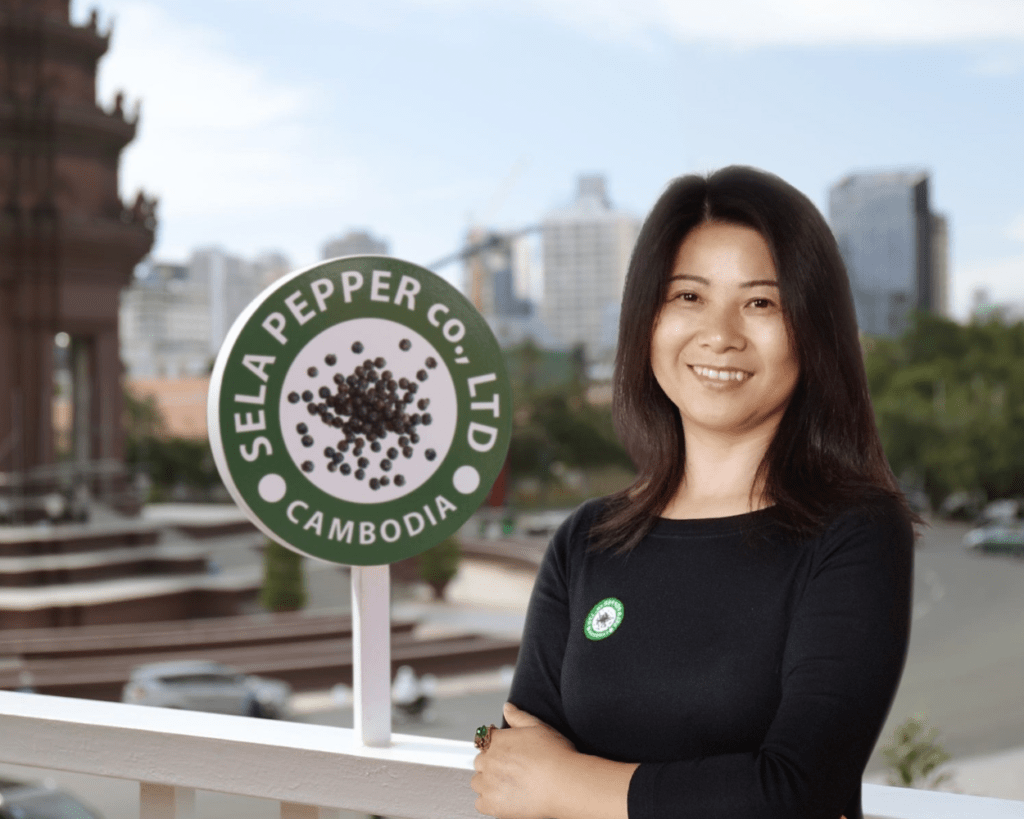While entrepreneurship may have become easier due to increased government support, the task of growing a small business has become more challenging as competition grows and technology changes rapidly around the world.
According to the U.S. Small Business Administration, around 70% of new businesses close their doors within just two years.
Yet, against the daunting odds, Sela Pepper, founded by foreign entrepreneurs Anna Cai and Nir Sela, has made its mark outside Cambodia in just nine years. The brand is now a leader of the country’s spice export industry and is widely regarded as a global ambassador for the finest Cambodian pepper.
“It all started with a simple vision. Our goal was to enhance the flavor of every dinner table,” Cai shared.

But the accomplishment is far from coincidental. Over its nine years of operations, Sela Pepper has refined its formula of success to three essential principles, a blueprint thatentrepreneurs can apply to grow a sustainable business.
Fostering an ecosystem of innovation
From the start, Sela Pepper focused on building the infrastructure necessary for meticulous production.
“Innovation is key to differentiation. By innovating our production and supply chain processes, we created an ecosystem that allows us to cultivate and produce superior quality pepper,”Cai explained.
The innovation ecosystem is based on several core principles: ensuring the traceability of raw materials to maintain high-quality standards, implementing a robust supply chain that adds value at every stage, conducting frequent quality checks, and maintaining compliance with international food standards through regular certifications.
“Our innovation ecosystem continues to evolve as we adopt best practices from key international markets,” Cai said.
Prioritizing sustainability in every decision
While Sela Pepper advances its innovation infrastructure, it also remains committed to environmental sustainability and community responsibility.
“Since we are in the agriculture industry, the health of the surrounding flora and fauna is crucial to the success of our product. We are deeply conscious of the impact that our pepper cultivation methods have on the environment and our farmers who work in the fields,” Cai stressed.
From its inception, Sela Pepper prioritized sustainable and green practices. This commitment remains a core value, guiding every decision the company makes. The integration of eco-friendly methods not only preserves the environment but also bolsters the long-term viability of Sela Pepper’s business.

Seizing untapped opportunities in a growing market
Alongside innovation and sustainability, Sela Pepper’s success is rooted in its proactive approach to identifying and capitalizing on untapped opportunities in Cambodia’s business landscape.
“When we saw the potential of Cambodia’s pepper, we prioritized understanding the local culture and business environment. Cambodia’s open business climate allowed us to grow and experiment freely. Embracing international best practices made us pioneers in Cambodia’s pepper industry,” shesaid.
Cai also believes that recognizing the untapped opportunities early on spurred them to undertake novel initiatives.
“Despite the availability of high-quality raw materials, the country’s agriculture industry lacked value-added processes needed to make its products competitive in global markets,” she explained.
Sela Pepper streamlined its processes to enhance the quality of the pepper at every stage of production, ensuring that it metinternational standards. This approach elevated the brand and helped Cambodia’s pepper gain worldwide recognition.
